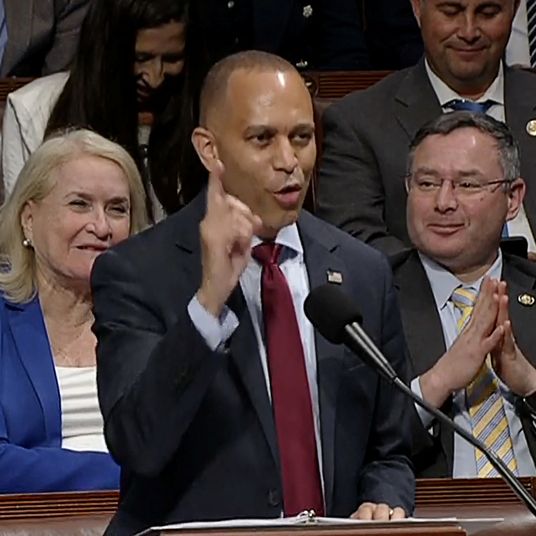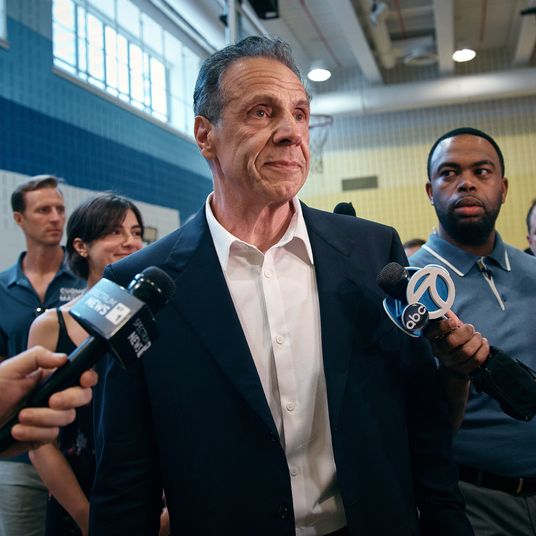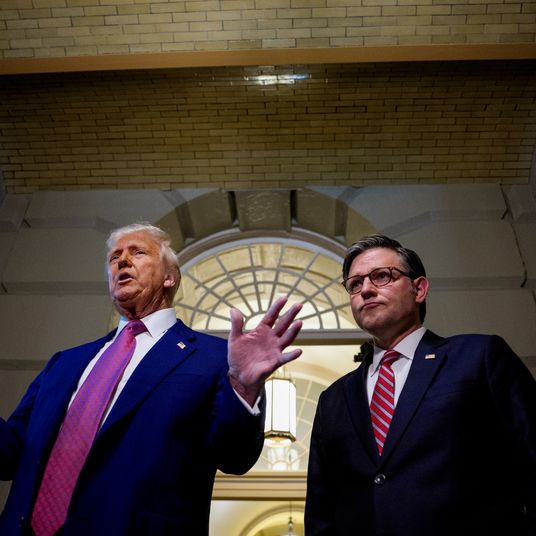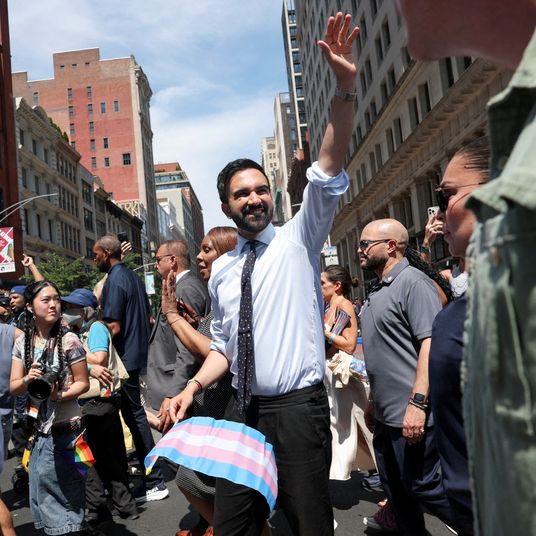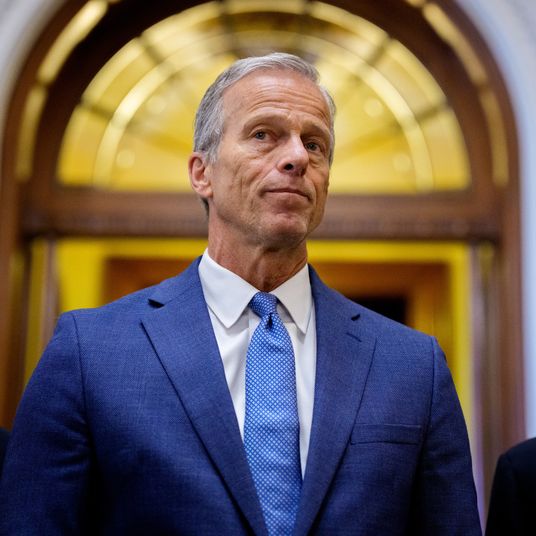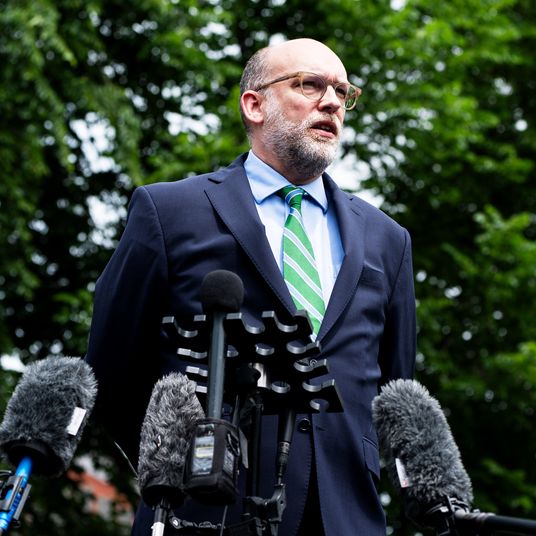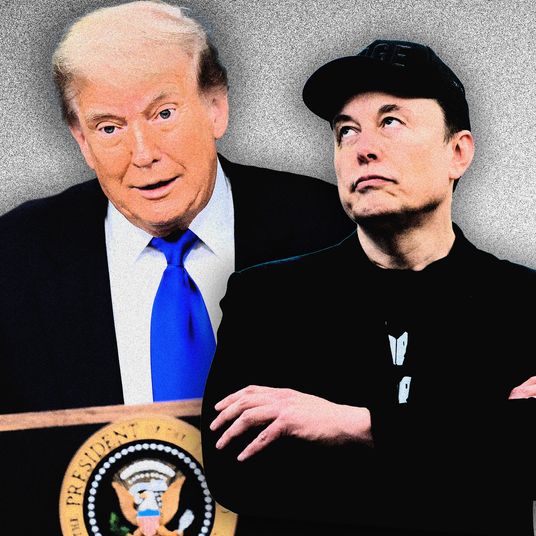
Donald Trump got what he wanted out of Congress; it’s possible, in the coming years, that he is going to deeply reject it.
This isn’t because Trump has any particular laments about the devastating policy in the reconciliation package, which will gut social safety-net programs and cut taxes, particularly on the rich. He won’t lament ballooning the deficit, either. He doesn’t think too hard about any of that.
Rather, the so-called One Big Beautiful Bill is bound to be a tremendous albatross for the Republicans charged with shepherding his agenda through Congress. It may, too, prove especially damaging for his plausible successor, J.D. Vance, who is still somewhat likely to be the 2028 Republican nominee, despite Trump’s flirtations with seeking an unconstitutional third term.
That’s because, in the end, Trump and congressional Republicans didn’t pursue any great policy commitments consistent with the populist, MAGA-infused realignment that delivered him a commanding victory in the 2024 election. They didn’t, like far-right populists across the world, marry social conservatism and immigration crackdowns with a charge to safeguard the welfare state. Gutting health care isn’t what the far right does outside the United States. Trump, at least, was wise enough to not campaign on it last year.
But you can’t spin Americans about their health care. Failed attempts to repeal the Affordable Care Act in 2017 fueled a Democratic midterm wave the following year. And these cuts, which are going into effect, will do a great deal of tangible damage: $1.1 trillion stripped from the health-care system, including nearly a trillion from Medicaid. Yes, the prototypical Republican politician cares almost nothing about health insurance for the working class and poor — this outpost of socialism in our capitalist economy — but they’ll understand very soon that insulating their constituents from these cuts will not be simple. They may fantasize about a world where Medicaid cuts merely torment Blue America, those big cities stuffed with the urban poor who generally don’t back their candidates. But Medicaid is what keeps rural America afloat, especially the underfunded hospital systems. There’s a reason Thom Tillis, the Republican senator from North Carolina, backed away from the reconciliation bill: He saw the suffering that was coming.
The irony of this legislation is that the movement of the working class and poor into the MAGA coalition did nothing to save them from the brunt of these cuts. This is a bill from the old-guard Republican Party, one forever partial to elites. That party won this fight. It’s a reminder that fealty to Trump extends far more to the person than to policy. Yes, Republicans will bend to Trump’s whims, but the cannier conservatives always understood what mattered to Trump was the spectacle of signing any legislation by July 4. Trump wants a win for the sake of a win. He doesn’t much care what’s in a Big Beautiful Bill as long as he can sign it and brag about it. He can preen. He can feel he has done something.
This is a domestic-policy bill, ultimately, that could have been belched out by any generic GOP administration — and in that sense, it doesn’t veer very much from Trump’s first term, when he rhetorically moved his party leftward on questions of economics and foreign policy but largely governed like the men he vanquished in the 2016 primary. There are no great surprises here; it’s merely the tax cuts generations of Republicans have brayed about. Adding spending on “border security,” meanwhile, is no revolution. Little of it is a coherent outgrowth of what happened last year, when Trump made tremendous inroads with Black, Latino, and Asian voters, portending a realignment that he has done almost nothing since to secure. The reconciliation package, above anything else, may be remembered just for the trillions it added to the national debt with virtually nothing to show for it. No budget holes are being blown open to give Americans much of anything.
Americans, on the whole, will be worse off for what just transpired in Washington. And those beleaguered, feckless Democrats will be handed a road map back to the House majority. The Senate is still the far tougher fight, but whatever messaging problems the Democrats have now will be solved, to a great degree, by next year. They know how to campaign on health care; they’ve done it for years, and usually with success. A strong defense of Medicare and Medicaid always polls well. They can blast away at the DOGE cuts to the federal government, which very few voters actually wanted. Republicans will have full control of Congress for at least one more year, and that may mean yet another reconciliation package that causes a great deal of chaos and benefits the vanishingly few. The only comfort the left can take is that MAGA will have no permanent, longstanding majority in this country. It’s only downhill from here.
